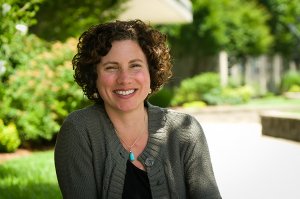A new study shows that a simple role-playing game is all it takes to motivate complete strangers to take action on climate change despite their political affiliation, cultural identity, age or gender.
By the end of the game, participants leave knowing that they are a part of the solution.
The paper is published in the journal PLOS ONE.
A game is all it takes
According to NASA, in just about 70 years, humans have contributed to making earth hotter by 0.9 degree Celsius by burning oil, gas and coal.
And if we reach 1.5 degree Celsius or more, scientists have repeatedly warned us of irrevocable natural disasters, like wildfires and inundated coastal cities.
And in just 2018, we’ve seen too much of that.
Record-high wildfires in California, Hurricanes Maria, Harvey and now Florence. While the list goes on, we still have three months more to go.
Realizing lectures and powerpoints will not bring people to climate action, researchers from UMass Lowell, MIT and Climate Interactive, a non-profit organization that runs climate simulation games, studied how World Climate, a climate change negotiations game simulating the United Nations climate talks, can bring climate action.
“Unlike a lecture or film, World Climate teaches through experience. Learning through experience engages both our rational, analytic thinking and our emotions, which drive us to act,” said Juliette Rooney-Varga, an associate professor of environmental science and a director of Climate Change Initiative at UMass Lowell and the study’s co-lead researcher.
“We desperately need climate-change communication that not only provides information, but actually moves people to act on that information.”

Image: UMass Lowell
Let’s play a game
In World Climate, participants are given roles of U.N. national delegates to come up with policies for greenhouse gas emissions to mitigate climate change.
While the developed nations pledge contributions to the Green Climate Fund to help developing nations cut their emissions and adapt to change, the developing nations specify how much they need to do so.
Their decisions are then entered into the climate policy computer model, C-ROADS, which has been used to support the real negotiations, giving participants immediate feedback on the expected climate impacts of their decisions.
First-round results usually fall short, showing everyone the likely harm to their prosperity, health and welfare.
Participants then negotiate again, using C-ROADS to explore the consequences of more ambitious emission cuts.
“Games like World Climate can create simulated experience that deliver the benefits of learning and engagement while avoiding the costs and risks of making mistakes in the real world,” said Rooney-Varga.

As of July 2018, more than 43,000 people in 78 countries have participated in World Climate Simulation.
The simulation has been reviewed by independent educators and scientists, found to support national science education standards in the U.S., and designated as an official resource for schools in France, Germany and South Korea.
The study
The researchers looked at how the game affected more than 2,000 participants from eight countries and four continents, ranging from middle school students to business executives.
The study relied on statistical analysis of surveys that participants completed before and after experiencing the game.
Across diverse political orientation, cultural identity, age or gender, every participant showed increased understanding of climate change, a greater sense of urgency and hope, and increased motivation to take action.
They found that 81 percent of participants showed increased motivation to combat climate change.
According to Rooney-Varga, the researchers also found that the game had a bigger effect on people who were less inclined to take action or knew less about climate change before the simulation than those who were already committed to action or more knowledgeable.
“The research also gave us an opportunity to analyze one question that our informal observations did not provide: whether or not World Climate can reach across the political divide,” she said.
After the role-play, people like free-market proponents were also motivated to take action.
“Climate change has become increasingly politicized and, at the same time, a growing body of social science research has shown that political views can pose an insurmountable barrier to climate communication,” said Rooney-Varga.
“Overcoming this barrier would definitely be a breakthrough and could provide a major contribution to society’s ability to mitigate climate change.”
The next step
The study’s co-authors — Eduardo Fracassi, who leads the Climate Change Awareness initiative at ITBA, Instituto Tecnologico de Buenos Aires, Argentina, and Florian Kapmeier, a professor at ESB Business School of Reutingen University, Germany — have used World Climate extensively across South America and Europe.
Kapmeier has shared the simulation with the Germany Ministry of Education, which designated World Climate as an official resource for German high schools.
According to Rooney-Varga, with funding from the National Science Foundation, her team is working with the Council for Opportunity in Education to bring World Climate to several thousands of low-income, first generation-in-college students across the U.S.
“One of the exciting findings we have so far is that World Climate increases students’ motivation to learn about climate change science, while also teaching leadership and critical thinking skills. These results suggest that World Climate may provide a boost to at-risk students in their academic careers,” she said.
In addition, the team will continue to look at how the game affects people with different political worldviews and socioeconomic backgrounds.
“Our main goal is to enable science-informed climate action at scale,” said Rooney-Varga. “To that end, we are always looking for collaborators and funding to expand the impact of World Climate and other tools that we are developing to reach young people and decision-makers around the world.”



